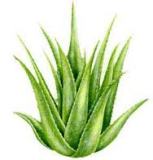The practitioner, who claims to be a specialist in infertility cases, declares that 80 per cent of people in the world depend on natural medicine for primary health care. He says that herbs and roots have a long history of treating diseases and the written history of natural medicine is over 2000 years old.
Dr.
Aminu Kazeem has attended several workshops and seminars including the workshop
Organized by the Public Health Department at the University of Lagos on 10th
July 2011 titled: Gonorrhea, is it treatable and preventable
with Herbal Medicine?’
Dr. Kazeem is a fellow of a number of Associations including:
Dr. Kazeem is a fellow of a number of Associations including:
*NEW
AGE ASSOCIATION OF TRADITIONAL MEDICINE PRACTITIONERS
*INTERNATIONAL HOLISTIC THERAPIES, UNITED KINGDOM
*HUMANITY HEALING INTERNATIONAL , USA.
*HEALING INTERNATIONAL, UK
In recognition of his contribution to the growth and development of Herbal Medicine practice in Nigeria Dr. Aminu Kazeem was honored with ORDER OF INTERNATIONAL MERIT BY THE AMERICAN BIOGRAPHICAL INSTITUTE, NORTH CAROLINA, USA.
*INTERNATIONAL HOLISTIC THERAPIES, UNITED KINGDOM
*HUMANITY HEALING INTERNATIONAL , USA.
*HEALING INTERNATIONAL, UK
In recognition of his contribution to the growth and development of Herbal Medicine practice in Nigeria Dr. Aminu Kazeem was honored with ORDER OF INTERNATIONAL MERIT BY THE AMERICAN BIOGRAPHICAL INSTITUTE, NORTH CAROLINA, USA.
He
has also been nominated for many local awards in Nigeria such as the Meritorious
Diamond Award for National Development by
Corporate & Media Africa Communication Limited
Head
Office: 28 Ivienagor Street, Off Aina Ojodu Berger, Ikeja, Lagos.
Telephone:
+2348034152029,
081-29047516 or 080-58563316
E-mail:drwhomp2004@yahoo. com
http://whompherbs.webs.com
http://whompherb.gnbo.com.ng
E-mail:drwhomp2004@yahoo. com
http://whompherbs.webs.com
http://whompherb.gnbo.com.ng

